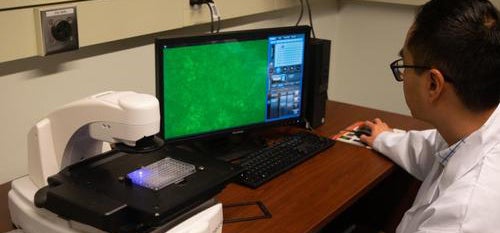
The new treatment differs from the traditional antibiotic treatment as it is a type of gene therapy that is delivered via nanotechnology and is showing a 65 per cent success rate in preventing chlamydia infection on a single dose.
"As antibiotic resistance continues to develop, people may experience Chlamydia infections that cannot be treated through conventional means, which is causing increasing public health challenges,” said Emmanuel Ho, a professor at Waterloo’s School of Pharmacy. “If left untreated or if treatment takes an extended period of time it can lead to infertility and other reproductive issues so finding new treatment methods is important."
"As the Food and Drug Administration in the United States has recently approved the first siRNA-based drug for market, we’re hopeful this kind of research will be able to be widely available in the future.”
The new treatment, created in Ho’s lab, targets Chlamydia infection by preventing the majority of bacteria from entering cells in the genital tract and destroying any bacteria that is able to penetrate a cell wall. The team was able to achieve this by using a small interfering ribonucleic acid (siRNA) to target a specific gene called PDGFR-beta in the female reproductive tract, which creates a protein that binds to Chlamydia bacteria.
“By targeting PDGFR-beta we’re able to stop the creation of the protein that Chlamydia will use to enter genital tract skin cells,” said Ho. “As a result, an incoming infection has fewer targets to latch onto and infection is less likely to occur.”
If Chlamydia bacteria can bind to cells and enter them the nanomedicine treatment is designed to activate autophagy, a cellular process where infected skin cells are able to form a bubble around that bacteria and destroy it.
On its own, siRNA cannot enter skin cells to reduce PDGFR-beta expression and prevent Chlamydia binding. The new gene therapy uses a unique nanoparticle that enables siRNA to enter the cells, reduce Chlamydia’s ability to bind and destroy invasive bacteria and prevent the disease from spreading.
Ho’s new treatment is detailed in a new study, Autophagy induction and PDGFR-β knockdown by siRNA-encapsulated nanoparticles reduce Chlamydia trachomatis infection, that appears in the academic journal Scientific Reports.
In the media:
-
Researchers Find New Treatment for Chlamydia, Science and Technology Research News, February 18 2019
-
Gene therapy: utilizing nanotechnology in fighting against Chlamydia, Science Times, February 14 2019
-
Nonantibiotic Treatment for Chlamydia Shows Promise, Everyday Health, February 13 2019
-
Nanotechnology used in new chlamydia treatment developed by University of Waterloo researchers, CBC Kitchener Waterloo, February 11 2019
-
University of Waterloo professor finds way to treat chlamydia without antibiotics, Waterloo Region Record, February 10 2019
-
Scientists discover new chlamydia treatment, Business Today, February 7 2019
-
Scientists have found a new treatment for chlamydia, New York Post, February 6 2019
- Scientists develop new treatment for chlamydia that DOESN'T rely on antibiotics, Mirror, February 6 2019
- Scientists develop new treatment for chlamydia that DOESN'T rely on antibiotics, Mirror UK, February 6 2019
- New treatment for chlamydia, Science Daily, February 6 2019
- Researchers find new treatment for Chlamydia, Business Standard, February 6 2019
- New non-antibiotic treatment discovered for world’s most common STI, Silicon Republic, February 6 2019
- Treatment could prevent and treat Chlamydia, Drug Target Review, February 6 2019
-
Researchers Find New Treatment for Chlamydia, Reach MD, February 6 2019
-
Scientists have developed a new method for the prevention and treatment of chlamydia – Naked Science, Archy Worldy's, February 6 2019